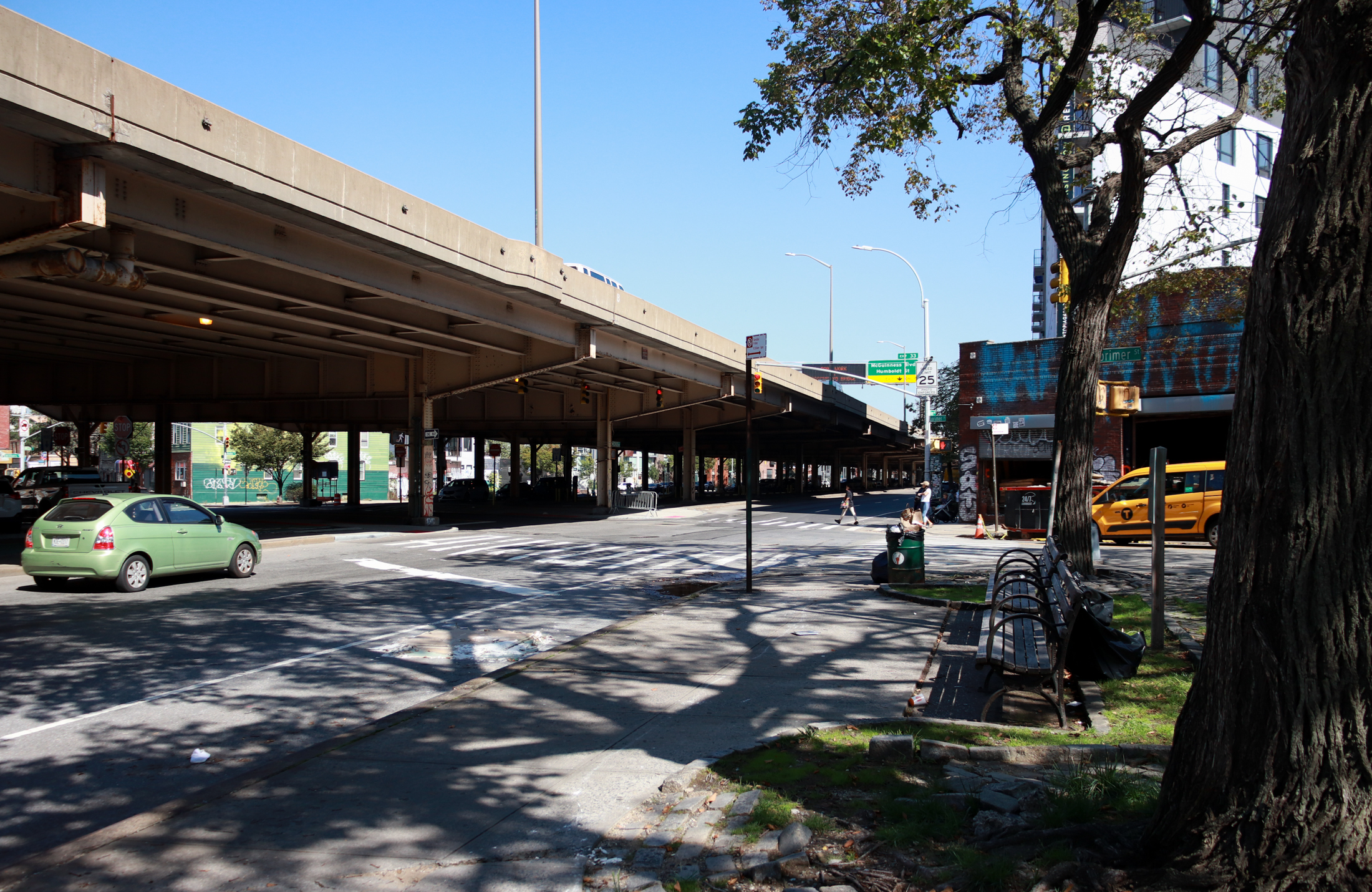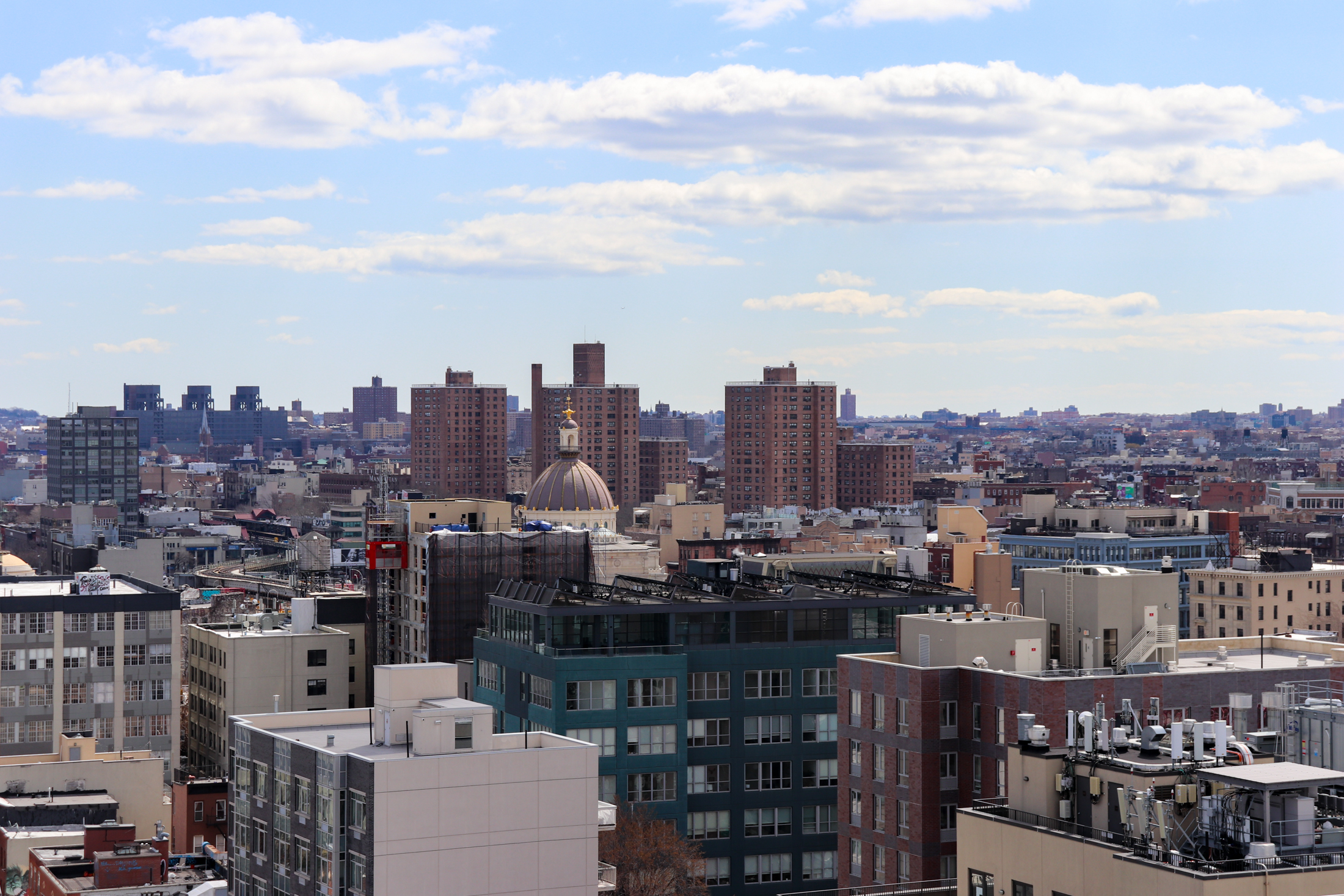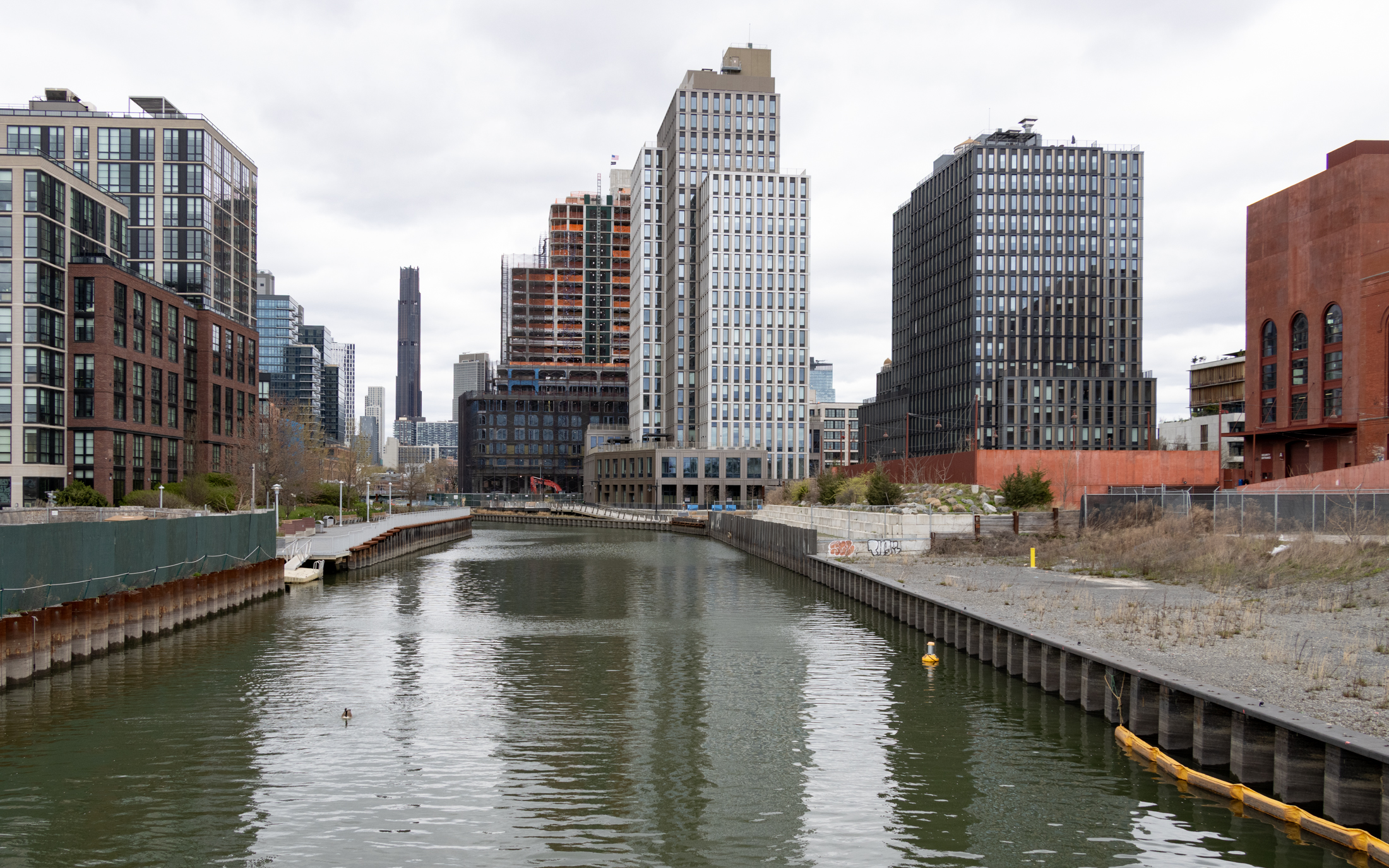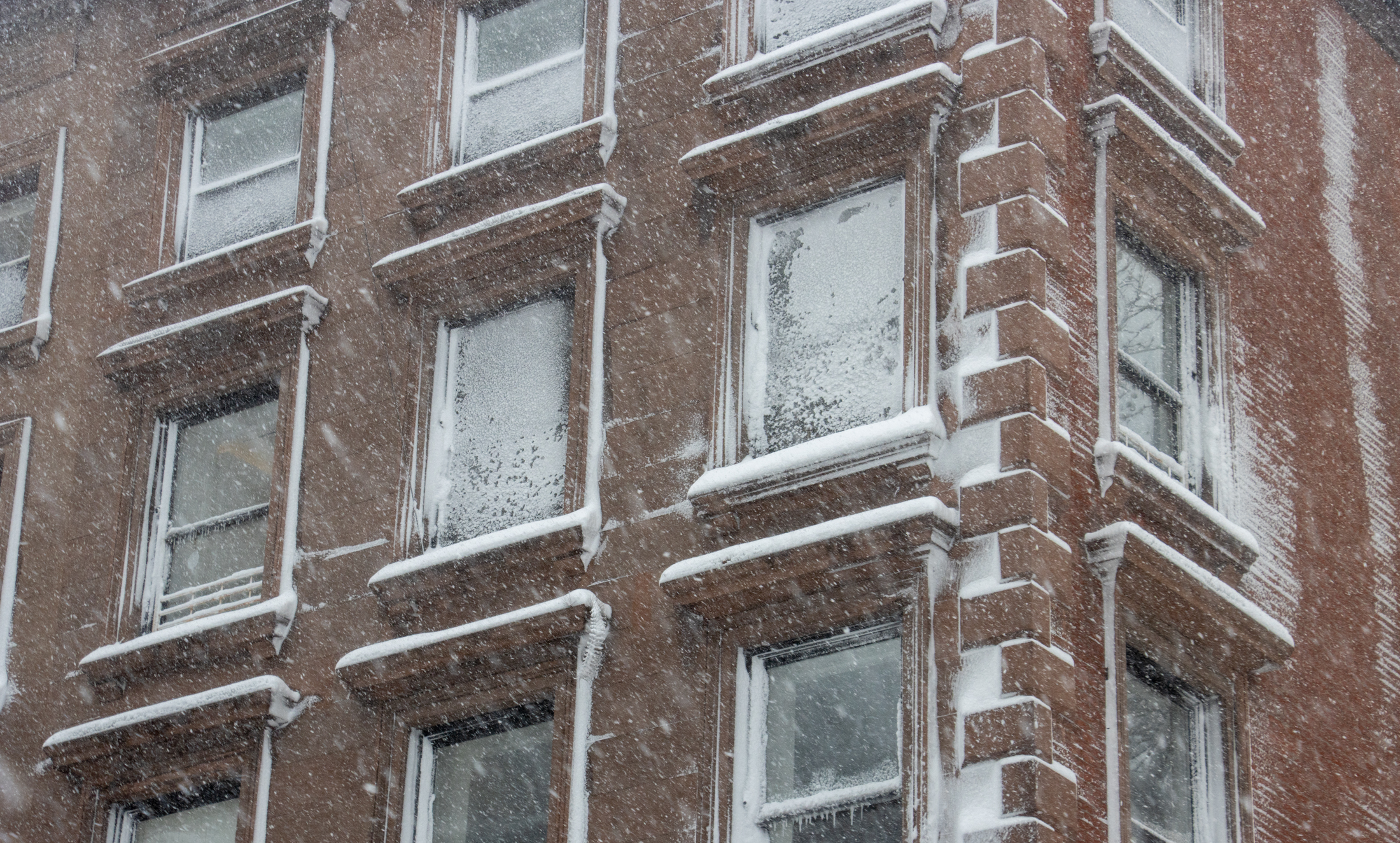EPA Nixes $3 Million El Puente Grant for Local Input in Environmental Plans
The agency is also cutting anti-flooding measures, solar power, battery storage, and other green projects near the water in Brooklyn.

El Puente members at a 2017 climate march. Photo via El Puente
by Kirstyn Brendlen, Brooklyn Paper
The people of South Williamsburg have, for decades, dealt with the long-term effects of environmental abuses and climate change.
New York City considers the nabe an environmental justice area — meaning it has suffered “disproportionate negative impacts due to historical and existing social inequities without equal protection and enforcement of environmental laws and regulations.”
Those impacts are still apparent, said Asenhat Gómez, interim executive director of local org El Puente. The local community boards, which influence zoning and policy decisions, aren’t representative of longtime South Williamsburg residents.
Last year, El Puente was awarded a $3 million Community Change grant from the federal Environmental Protection Agency. The nonprofit planned to use the grant to bring underrepresented residents into the fold on environmental and planning decisions, Gómez said, to ensure their voices and experiences are heard and considered.
“The people impacted should be the people making decisions,” she said. “It is easier for you to do away with something if you have never experienced or lived what our communities have lived and have experienced.”
But last month, under the direction of President Donald Trump and EPA administrator Lee Zeldin, the grant was canceled. In a May 2 email, the EPA said El Puente’s project was “no longer consistent with EPA funding priorities.”

El Puente’s grant was one of hundreds canceled by Zeldin because they were related to environmental justice or diversity, equity, and inclusion (DEI). The grants would have funded dozens of climate-related projects — one, in Savannah, would have provided free insulation and HVAC to vulnerable homeowners; another would have protected homes in Washington from wildfire smoke.
Many of those grants were authorized by former president Joe Biden’s Inflation Reduction Act, which included $3 billion for EPA grants to “help disadvantaged communities and provide technical assistance.”
Sudden cut leaves El Puente on unsteady ground
The grant would have allowed El Puente to hire more people to engage with locals at schools, NYCHA developments, and other areas around the neighborhood and invite them to join new Environmental Advisory Boards, where they would learn about and discuss environmental issues and how to address them via local government.
“For instance, Bushwick is one of the communities that gets flooded,” Gómez explained. “And there’s big plans for some infrastructure upgrades, right? But a lot of the community doesn’t always know or have all the information. They have the lived experiences … But they don’t always have the information about, ‘How do we get engaged in these decision-making bodies in the community.’ That’s the goal of this EPA grant.”

The EABs would have eventually been integrated with local Community Boards 1 and 4 in an effort to make the bodies more representative of the neighborhoods they represent.
“These Environmental Advisory Boards would be made up of community members who would maybe not normally have the time, space, resources, knowledge of what it means to be on a community board,” said Raisa Garden Lucerna, a youth leader and Environmental Justice Campaign and Policy Manager at El Puente. “The hope [with] the EABs was also to inspire and empower community members to not feel disillusioned by city processes, like community boards and land use decisions and zoning decisions.”
El Puente worked on its grant application for months, Gómez said, and they started moving quickly once the award was granted on January 1, contacting their partners on the project, interviewing job candidates, and preparing to launch their project. Their EPA program manager even attended their Three Kings Day celebration in January, Gómez said.
But the grant was frozen in February. Litigation brought against the federal government by other nonprofit groups temporarily unfroze the grant in April, but El Puente was hesitant to pull any money — or to do too much work, since it was unclear whether the grant would be restored permanently.
“We’ve been told all along the best thing you can do is stay in compliance [with EPA requirements],” Gómez said. “That has been the expectation. And we’ve done that to the best of our ability to stay fiscally in compliance and programmatically in compliance. But you’re asking folks to do work for which they’re not being paid.”
After the grant was officially terminated last month, there has been no further communication from the EPA, Gómez said. Even before then, communication with the agency had been sparse, as the program manager El Puente had been working with was fired.
With the grant canceled, El Puente had to tell five people who had gone through intense interviews and background checks that they could not be hired.
Garden Lucerna, the daughter of El Puente’s founders, said the cancellation would force the team to think more creatively. But it’s put a damper on the org’s plans and programs, echoes historical injustices that shoved environmental burdens onto minority communities.
South Williamsburg is bisected by the Brooklyn-Queens Expressway, and the pollution it brings degrades air quality and causes higher rates of asthma in children and adults. Garden Lucerna herself has asthma, she said, and her father died from a respiratory infection.
The area is also vulnerable to the urban heat island effect, and often feels up to 10 degrees Fahrenheit hotter than the actual temperature. The needs of longtime residents of South Williamsburg are different from those represented on CB1.
“Ultimately, I think we’re setting ourselves backwards,” Gómez said. “I think we have worked so hard for so long to ensure that our communities are represented, are heard, are part of the decision-making processes. And I think the gap is becoming wider because this work won’t be able to happen.”
EPA officials slam DEI, environmental justice
When reached for comment about El Puente’s grant, an EPA representative put the blame on the past administration.
“Maybe the Biden-Harris administration shouldn’t have forced their radical agenda of wasteful DEI programs and ‘environmental justice’ preferencing on the EPA’s core mission,” the spox told Brooklyn Paper. “The Trump EPA will continue to work with states, tribes, and communities to support projects that advance the agency’s core mission of protecting human health and the environment.”
Zeldin, the EPA administrator, has been effusive in his praise of canceling grants and funding.
“The American people deserve accountability and responsible stewardship of their hard-earned tax dollars,” Zeldin said in February, after cutting several contracts at EPA. “At President Trump’s direction, EPA, with the assistance of DOGE, are reviewing every dollar spent. There will be zero tolerance for waste and abuse, and by canceling these contracts, we are delivering nearly $60 million in immediate savings to the American people.”
Gómez and Garden Lucerna said the cuts harkened back to historical injustices in the area and in environmental justice communities around the country. The sentiment was echoed by U.S. Representative Nydia Velázquez, who has long represented the area in Congress. In March, Velázquez signed on to an open letter to the EPA in opposition to proposed budget cuts.

“This decision by the EPA will do real harm to El Puente and the communities they serve across Brooklyn,” she told Brooklyn Paper. “These neighborhoods have borne the brunt of environmental injustice for decades, with higher rates of pollution and asthma as a result. The EPA’s mission is to protect human health and the environment. Canceling El Puente’s grant, and others like it across the country, does nothing but undermine that goal.”
Data gathered by The Public Environmental Data Partners shows that a number of other local organizations have had their EPA grants scrapped, including the Sixth Street Community Center in Manhattan and the Rockaway Waterfront Alliance.
“I think what we’re seeing across the board at the federal level across this nation is community organizations like ours are being stripped of all of the resources that they need to advance and continue to grow the really important work that we’re trying to do,” Garden Lucerna said.
City and state agencies have been affected too. Cuts included $1 million nixed from the city’s Air Conditioner Recovery Program and a $1 million grant dedicated to energy transition in south Brooklyn listed by the state’s Office of Resilient Homes and Communities.
The ORHC project, according to EPA documents, would have worked with UPROSE and the Southwest Brooklyn Industrial Development Corporation to create resiliency committees in Sunset Park, Red Hook, and Gowanus — coastal, industrial neighborhoods vulnerable to climate change and flooding.
Those committees would have worked to create potential plans to fortify the neighborhoods against climate change while investing in and adopting zero-emissions tech and green construction — like solar panels, battery storage systems, and more.
The Office of Resilient Homes and Communities declined to comment.
It’s not clear whether the EPA will continue the grant programs it has cut funding from. The agency does intend to close its Environmental Justice and DEI branches.
“EPA is in the process of terminating hundreds of grants representing the full extent of financial support provided by the agency’s Office of Environmental Justice, which they are also disbanding,” said Zealan Hoover, a former senior advisor at the EPA. “In total, they are terminating hundreds of grants to local communities totaling over $2 billion. These grants were intended to help local communities address pollution and improve participation in government decision making.”
Seeking support elsewhere
Gómez said El Puente has not yet identified any potential sources of funding that could fill the gap left by the EPA cut, though she is hopeful. In the meantime, the group is also asking for donations from the community.
“We are hoping that philanthropy will step up, but again, I also know that there’s fear there,” she said. “I know that there are lots of folks who want to support, I don’t know if they have the pockets to support.”
El Puente has also received grants from the National Endowment for the Arts, Garden Lucerna said, but many of those grants have been slashed, too.
“As much as we’re talking about money and systems and policy and planning and governance, there’s people’s lives that are going to be most affected,” she said. “People’s lives and our future.”
Editor’s note: A version of this story originally ran in Brooklyn Paper. Click here to see the original story.
Related Stories
- Decade-Old Plan to Put Park Over South ‘Burg Section of BQE Revived by Local Officials
- Williamsburg Air Quality Study Points to Pollution Hot Spots on Southside
- Interactive Map Tracks North Brooklyn’s Industrial Past and Environmental Legacy
Email tips@brownstoner.com with further comments, questions or tips. Follow Brownstoner on X and Instagram, and like us on Facebook.





What's Your Take? Leave a Comment